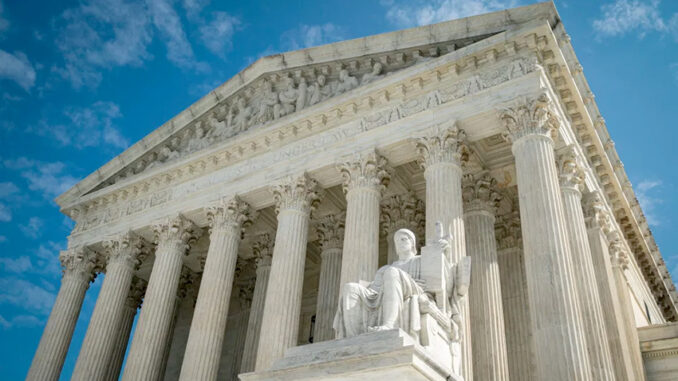
The Supreme Court ruled that immigrants who have committed certain crimes must show that they are eligible for the pardon of deportation, since they would be violating the so-called “good moral character” rule.
With a 5-3 decision, conservative judges backed the opinion of Judge Neil Gorsuch , who was appointed by former President Donald Trump , on the Clemente Pereida case .
The judge ruled that the immigrant could not show that he should have been allowed to present his case to an immigration judge, to stop his deportation. “People seeking relief from a legal deportation order bear a heavy burden … Mr. Pereida was unable to prove that burden,” says Judge Gorsuch’s opinion.
Among the arguments of Pereida’s defenders, he pointed out that the expulsion from the United States would bring severe stress to his family, including his American son; they also argued that the state registry in Nebraska is ambiguous about the crime that the immigrant would have committed.
Judge Gorshuch dismissed both arguments, in addition to criticizing Pereida for refusing “to acknowledge his crime” and, then, the authority could determine if he was eligible for a pardon.
“Here, Mr. Pereida admits that he has a recent conviction, but refuses to identify the crime,” says the opinion. “As a result … no one can be sure if his crime involved ‘moral depravity’ and, thanks to this ambiguity, he is still eligible for help.” Pereida was convicted in Nebraska of a crime of Social Security number fraud.
The judge also supports the decision of the Eighth Circuit, that immigrants must show that they are eligible and did not commit crimes that would prevent them from obtaining a pardon. “The INA (immigration law) expressly requires that people seeking exemption from legal deportation orders demonstrate all aspects of their eligibility,” says the judge. “That includes showing that they are not convicted of a disqualifying criminal offense.”
Judge Stephen Breyer rejected the opinion and was supported by judges Sonia Sotomayor and Elena Kagan . The Office of Citizenship and Immigration Services ( USCIS ) points out some offenses that would prevent any immigrant from obtaining a benefit, including Permanent Residence or naturalization, such as evading the court after posting bail for a crime; bank fraud; conspiracy to distribute a controlled substance, and Social Security fraud, among others



Be the first to comment